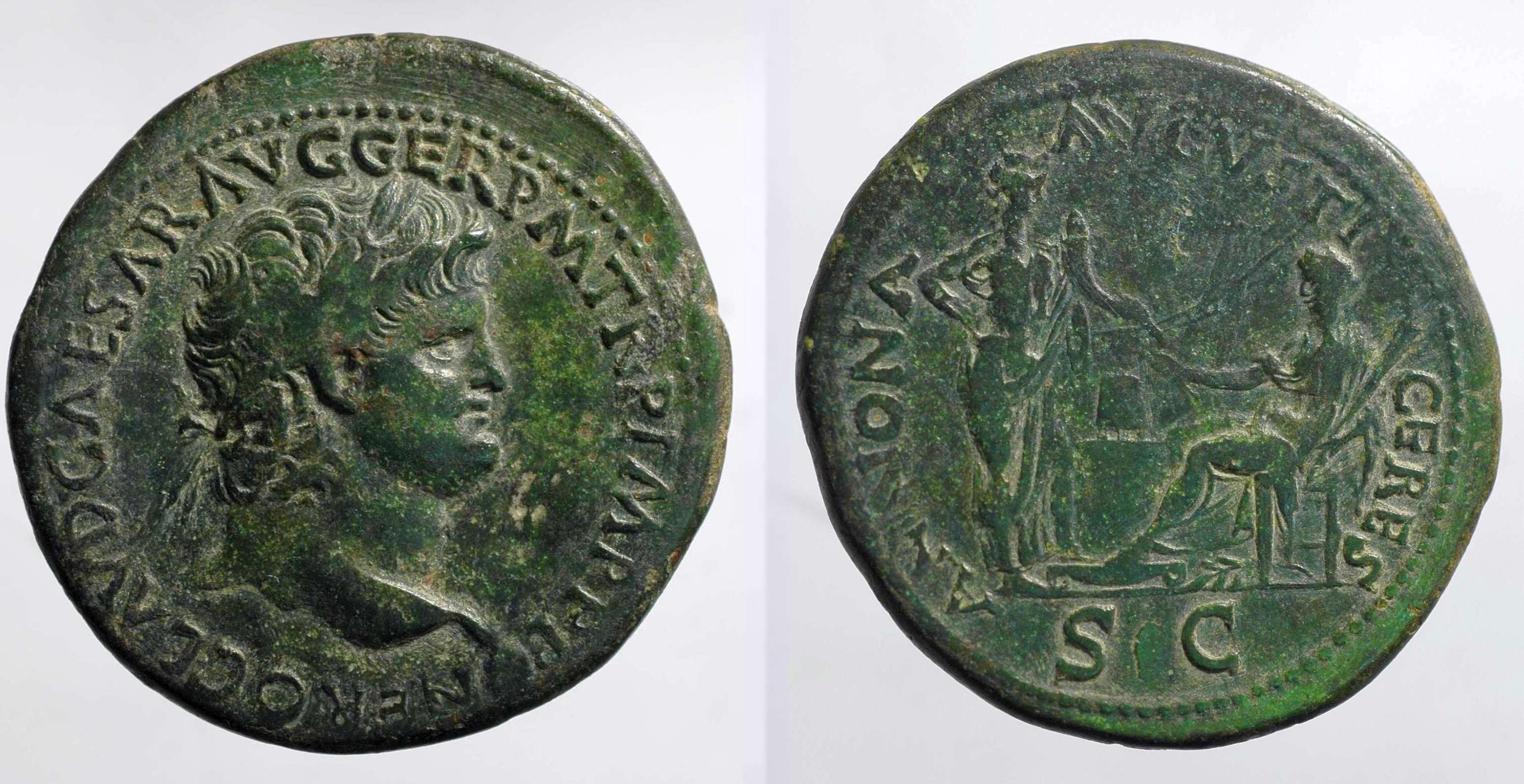Nero
Emperor of Rome, 54-68 A.D.

Silver tetradrachm (provincial issue made for use in the Roman province of
Syria), 25 mm.
Mint of Antioch
O: Nero facing right.
R: Eagle on thunderbolt. Date, in field: "Z / Theta - P",
or regnal year 7 / year 109 of the Caesarian era, which corresponds to 60-61
AD. Nero was about 23 years old when this coin was struck.

Bronze sestertius, 36 mm.
O: Nero facing left.
R: Ceres seated, facing Annona who is standing. Between them is a modius set on an altar and a ship’s
stern.
Lugdunum mint, 65 AD. This coin, struck about 4-5 years after the Antioch
tetradrachm, shows Nero a little older and a lot fatter.
Nero Claudius Caesar was one of the most infamous Roman emperors. He was the son of Domitius Ahenobarbus and Caligula's sister Agrippina II. He owed his position to his ambitions mother. After Agrippina married Emperor Claudius I (her fourth marriage), she induced him to adopt Nero.
When Claudius died, Nero was hailed as the new emperor. Initially his reign was good, heavily influenced by Agrippina and two additional advisors (Seneca and Burrus). Nero resented Agrippina's interference and had her murdered in 59 AD. Burrus died and Seneca retired in 62.
In 62, he revived the wide-ranging law of treason, and people were executed on suspicion of offense. Executions increased in 65, when an assassination plot was uncovered. The poet Lucan, Seneca, the famous general Corbulo, and numerous other senators lost their lives.
In 64, a great fire ruined Rome. Nero lavishly rebuilt the city, but rumor held that he had started the fire himself to make room for his new palace and that he had recited poetry while watching the blaze. To avert this suspicion Nero blamed the Christians for the fire, thus initiating the first major Roman persecution of that sect.
Nero's great passions were sex, music, singing, acting, and chariot
racing. In 67 he toured Greece; the Greeks held numerous
games and awarded Nero all of the first prizes for his racing and musical
performances in honor of his visit. As Nero devoted himself to artistic
pursuits, he neglected the affairs of state, and the reins of power slipped
from his hands. In 68 the governors of three provinces rose in an open
revolt. When deserted by his guard, he committed suicide.
Return to Main Page